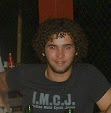Ever since I found the Bryan Magee TV series on Modern Philosophy and the History of Philosophy broadcasted at prime time by BBC in the late 70s and 80s, I have been searching for similar shows still on air today or at least more recent. It is a difficult quest, but it is fortunately coronated by findings as interesting as Closer to Truth. The host Robert Lawrence Kuhn is a quite different kind host, and the show is very much influenced by the speed and headlines need of the present day media. So, this time you won't find any sofa-lying attitude and a kind of conversational reasoning to help the exposition of very fundamental ideas, a signature of Bryan Magee's programs. Instead, the new host urges the interviewee to go straight to the subject and extracts well-stated concise summaries without giving too much time to the audience to polish their rough interpretations of their actual ideas. Indeed is more an interview-base program and less of debate. But the host is still key at unraveling the complexities of the interviewee's ideas. (You will notice that a common feature of all these interviews is the out-of-focus camera at the beginning rapidly changing to a clear image: a very symbolic way of telling the audience about their style of extracting knowledge).
Here I share with you one example of these interviews about the philosophy of science from the perspective of developmental psychology. That's right, studying philosophy of science from babies... I hope you enjoy it!
Here I share with you one example of these interviews about the philosophy of science from the perspective of developmental psychology. That's right, studying philosophy of science from babies... I hope you enjoy it!

Maybe this capacity seen in children is what it's called the patterning instinct in the book I mentioned before. The tendency to search for patterns and meaning in everything.
ReplyDelete